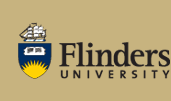
The Master of Science (Computer Science) is a 72-unit program offered by the School of Computer Science, Engineering and Mathematics, within the Faculty of Science and Engineering.
Applicants must normally hold an approved Bachelor’s degree or equivalent in computer science, information technology, ICT-based engineering or a closely related discipline from an approved institution. Applicants with an approved degree in behavioural science or psychology, which includes a major in artificial intelligence or computer science, are also eligible to apply.
Note: Applicants who hold a degree or equivalent in a discipline that is not listed above should apply for admission to the Master of Information Technology.
This award aims to provide students with:
The award provides the foundations that will underpin ongoing professional development, preparing students for admission to a research degree or for a career in a computing related field or in other areas where the range of skills and knowledge acquired is needed or desirable.
On completion of the course, students will be able to:
Graduates of 4-year computing or software engineering awards (or 3-year awards plus honours) may receive up to 36 units of credit.
To qualify for the Master of Science (Computer Science), a student must complete 72 units, with a grade of P or NGP or better in each topic, according to the program of study detailed below.
9 units comprising:
ENGR4742 Standards, Ethics and Compliance (4.5 units)
STAT5702 Statistical Methods for Engineering and Science (4.5 units)
18 units comprising:
COMP5700 Masters Thesis (18 units) OR
COMP5700A Masters Thesis (4.5/18 units) AND
COMP5700B Masters Thesis (4.5/18 units) AND
COMP5700C Masters Thesis (4.5/18 units) AND
COMP5700D Masters Thesis (4.5/18 units)
Plus 18 units from one of the following streams (some topics may not be available every year):
COMP4707 Advanced Data Mining (4.5 units)
COMP4706 Advanced Conceptual Modelling and Knowledge Engineering (4.5 units)
COMP4712 Embodied Conversational Agents (4.5 units)
COMP4716 Information Retrieval and Text Processing (4.5 units)
* With the permission of the Director of Studies, up to 9 units may be substituted with appropriate masters-level or 3000-level topics in Neuroscience or Cognitive Science or by alternative appropriate topics in computer science.
COMP4702 Computer Supported Cooperative Work and Groupware (4.5 units)
ENGR4722 Haptic-Enabled Systems (4.5 units)
COMP4712 Embodied Conversational Agents (4.5 units)
COMP4716 Information Retrieval and Text Processing (4.5 units)
^With the permission of the Director of Studies, up to 9 units may be substituted with appropriate masters-level or 3000-level topics in Human Factors or Digital Media.
Plus 27 units of CSEM option topics selected from Table A, with at least 13.5 units selected from:
**With the permission of the Director of Studies, a total (including those substituted in the Stream) of up to 9 units may be substituted with 3000-level topics in Computer Science, Engineering, or Mathematics, or another cognate area.
CRICOS Provider: 00114A | Updated: 06 Jun, 2011